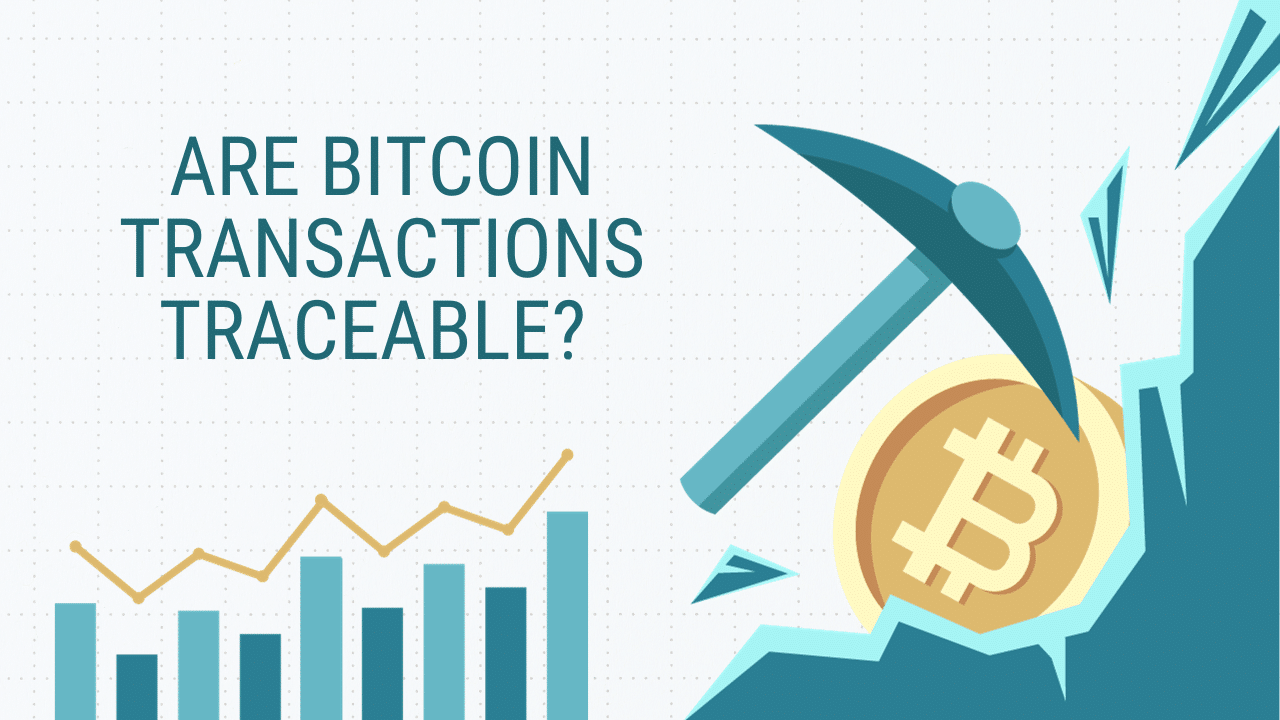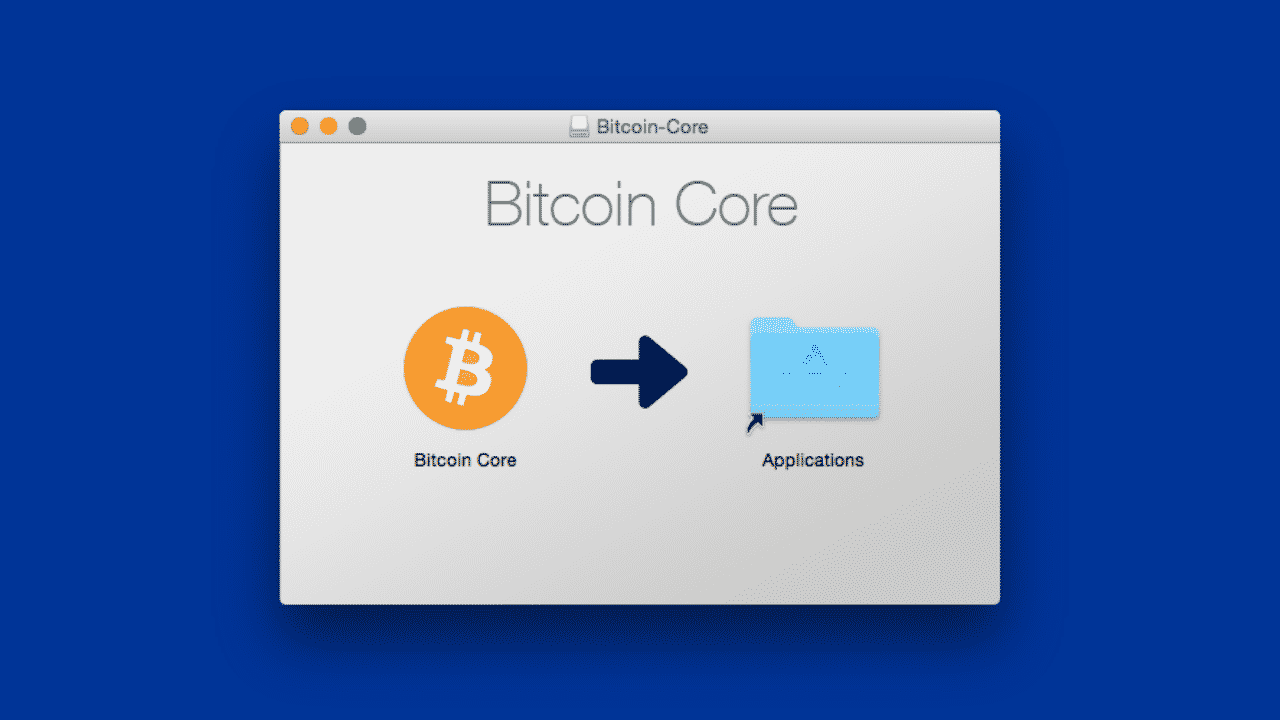 Navigation
Navigation

Are Bitcoin Transactions Traceable? You Will De Surprised
|
|
Bitcoin transactions using blockchain technology are essential in the world of cryptocurrency. They can be securely managed through an online wallet and tracked on a blockchain explorer. Additionally, decentralized exchanges offer a reliable platform for trading Bitcoin and other cryptocurrencies. However, there is an ongoing concern about the traceability of transactions on decentralized exchanges, especially when it comes to crypto taxes. With the use of platforms like Koinly, individuals can easily track their transactions and ensure compliance with tax regulations. This is essential because all transactions on the Bitcoin blockchain are recorded and can be audited if needed. Understanding whether Bitcoin transactions are traceable is crucial for both users and regulators alike, especially with the rise of many crypto exchanges. With tools like Koinly, users can easily track their transactions and ensure compliance with taxes. It is important for both the sender and receiver to be aware of the traceability of these transactions.
The question arises: Are Bitcoin transactions truly traceable? In this blog post, we delve into the significance of traceability in the context of personal information and identity. We analyze data, name, and taint analysis to better understand how they relate to each other. Additionally, we provide an insightful report on these topics. In this blog post, we explore the services and technologies that provide different levels of transparency when it comes to data. We also touch upon the importance of tax reporting and how mixers can play a role in ensuring accuracy. By gaining insights into the level of traceability in crypto exchanges, users can make informed decisions regarding their trust in different parties involved in Bitcoin transactions. This can be achieved by analyzing the data and report provided by these exchanges to ensure compliance with tax regulations.
Join us as we navigate through the intricacies of Bitcoin transaction traceability on crypto exchanges, highlighting potential risks and offering an understanding of how this technology can be utilized responsibly for tax purposes. We will explore the data and form necessary for proper reporting.
Understanding Bitcoin Traceability
Bitcoin‘s blockchain is the backbone of its transparent and public transaction records on crypto exchanges. This data is crucial for tax purposes in the US. Each transaction on crypto exchanges is linked to a unique address, enabling the possibility of tracking its movement for tax and data purposes in the US. However, the level of traceability varies depending on how users handle their tax-related transactions with crypto exchanges and complete the necessary form.
Transparent and Public Transaction Records
The beauty of Bitcoin lies in its blockchain, a decentralized ledger that records all transactions on crypto exchanges. It is important to consider the tax implications of these transactions and ensure accurate reporting on the appropriate form. This means that every transaction made using Bitcoin on crypto exchanges can be viewed by anyone with access to the blockchain, which may have tax implications. The transparency and public nature of these records are what make Bitcoin different from traditional financial systems, especially when it comes to crypto exchanges and tax.
Unique Addresses for Transactions
When you make a Bitcoin transaction on crypto exchanges, it is associated with a unique address that may have tax implications. Think of this address as your digital signature or fingerprint within the blockchain network, especially when it comes to crypto exchanges and tax. This crypto address serves as an identifier for your crypto transactions, allowing others to track the movement of funds associated with it for tax purposes.
Tracking Transaction Movement
Because each crypto transaction is linked to a unique address, it becomes possible to trace its movement through the blockchain for tax purposes. By analyzing the crypto chain of transactions associated with a particular address, one can gain insights into where the funds originated from and where they were sent for tax purposes.
For example, imagine you receive some crypto (Bitcoins) from a friend who received them from an online store. The topic of tax is also relevant in this scenario. By examining the addresses involved in these crypto transactions, someone could potentially trace back those Bitcoins’ origins to that online store or even further back in the crypto chain.
Varying Levels of Traceability
While it is technically possible to trace crypto transactions, achieving complete anonymity in the crypto world can be challenging. The level of traceability in crypto depends on how users handle their transactions.
If crypto users take certain precautions like using mixing services or tumblers that shuffle funds between multiple addresses, it becomes more difficult to track individual crypto transactions accurately. These crypto services aim to obscure the link between different addresses and enhance user privacy.
On the other hand, if crypto users do not take any steps to obfuscate their transactions’ origin and destination addresses, tracing becomes relatively easier. It is important to note that even if users take precautions, sophisticated analysis techniques and blockchain forensics can still uncover patterns and potentially link crypto transactions.
Anonymity vs. Traceability of Bitcoin Transactions
Bitcoin, a popular form of crypto, has often been associated with anonymity. However, it is important to note that Bitcoin offers pseudonymity rather than complete anonymity. While crypto users are identified by their public addresses instead of personal information, transactions can still be traced through various blockchain analysis techniques.
Bitcoin’s Pseudonymous Nature
Bitcoin provides a certain level of pseudonymity. Instead of using real names or personal information, crypto users are identified by their public addresses. These crypto addresses serve as digital wallets for storing and sending Bitcoin. This crypto feature allows users to transact without revealing their true identities.
Tracing Transactions through Blockchain Analysis
However, despite its pseudonymous nature, crypto transactions are not entirely untraceable. The crypto blockchain, which serves as a transparent public ledger recording all crypto transactions, can be analyzed to trace the flow of crypto funds. Through sophisticated techniques like address clustering and transaction graph analysis, crypto investigators can link multiple crypto transactions to specific individuals or entities.
Crypto address clustering involves grouping together multiple addresses that are likely controlled by the same user based on patterns and common spending habits in the crypto industry. By analyzing these crypto clusters and mapping out crypto transaction flows on the blockchain, it becomes possible to gain insights into how crypto funds move between different parties.
Transaction graph analysis in the crypto industry focuses on examining the relationships between different transactions and addresses within the blockchain network. By identifying input and output addresses associated with each transaction and analyzing their connections over time, investigators can establish patterns and uncover potential links between users.
Balancing Privacy and Transparency
In this evolving landscape of cryptocurrencies, striking a balance between privacy and transparency is crucial. While some argue for stronger privacy features to protect individual financial information from prying eyes, others emphasize the importance of maintaining transparency for regulatory purposes such as combating money laundering or illicit activities.
Bitcoin‘s pseudonymity allows for a certain level of privacy while still ensuring transparency through its public ledger system. It enables individuals to transact without revealing their identities fully, but it also provides a traceable record of transactions that can be audited if necessary.
As the cryptocurrency ecosystem continues to develop, new technologies and privacy-enhancing features are being explored. Projects like privacy coins aim to provide stronger anonymity by implementing cryptographic techniques to obfuscate transaction details and improve user privacy.
How Cryptocurrency Transactions Are Traced
Blockchain Analysis Companies
Blockchain analysis companies play a crucial role in tracing cryptocurrency transactions, particularly those involving Bitcoin. These companies employ various tools and techniques to unravel the transaction history and identify the individuals behind them.
Analyzing Patterns, Addresses, and Transaction Flows
To trace Bitcoin transactions, blockchain analysis companies closely examine patterns, addresses, and transaction flows on the blockchain. By analyzing these elements, they can gain insights into the movement of funds and potentially link them to specific owners.
One of the key techniques used in this process is clustering. Through clustering, multiple addresses that are believed to belong to a single entity can be linked together. This helps in establishing connections between different transactions and identifying common ownership.
Uncovering Ownership
By meticulously studying the transaction history recorded on the blockchain, these companies aim to uncover the true owners of cryptocurrency funds. They follow the flow of funds from one address to another, tracking every step along the way.
Through their analysis, they can often identify known entities such as exchanges or wallets associated with certain addresses. This information can be invaluable in understanding how funds move within the cryptocurrency ecosystem.
Tracking Illicit Activities
The ability to trace cryptocurrency transactions has significant implications for combating illicit activities such as money laundering and fraud. Blockchain analysis companies work closely with law enforcement agencies and regulatory bodies to assist in investigations related to illegal activities involving cryptocurrencies.
By tracing transactions back to their origin or destination, these companies help law enforcement agencies build a comprehensive picture of criminal networks operating within the crypto space. This information can aid in apprehending perpetrators and recovering stolen funds.
Privacy Concerns
While blockchain analysis has proven effective in tracing cryptocurrency transactions, it also raises concerns about privacy. Some argue that this level of transparency goes against one of the fundamental principles of cryptocurrencies – anonymity.
However, it’s important to note that while Bitcoin transactions are pseudonymous (meaning they are linked to addresses rather than real-world identities), they are not entirely anonymous. Every transaction is recorded on the blockchain, which can be analyzed to uncover patterns and connections.
The Role of Blockchain Analysis in Cryptocurrency
Blockchain analysis plays a vital role in combating illicit activities involving cryptocurrencies. It helps law enforcement agencies identify criminals and track their funds, while also assisting financial institutions in ensuring compliance with regulations.
Combating Illicit Activities
Blockchain analysis is crucial for identifying and preventing illicit activities within the cryptocurrency space. By analyzing the blockchain, which is a decentralized ledger that records all transactions, investigators can trace the flow of funds and identify suspicious or illegal transactions. This process allows them to uncover criminal networks involved in money laundering, fraud, or other illicit activities.
Tracking Criminals
Through blockchain analysis, law enforcement agencies can track criminals who use cryptocurrencies for illegal purposes. By analyzing transaction patterns and following the digital footprints left on the blockchain, investigators can link specific addresses to individuals or organizations involved in criminal activities. This information provides valuable leads for further investigations and helps bring offenders to justice.
Ensuring Compliance with Regulations
Financial institutions also rely on blockchain analysis to ensure compliance with regulatory requirements. With increased scrutiny from regulators, banks and other financial entities need to verify the legitimacy of transactions involving cryptocurrencies. Blockchain analysis enables them to assess the risk associated with crypto assets and detect any suspicious activity that may violate anti-money laundering (AML) or know-your-customer (KYC) regulations.
Utilizing Blockchain Explorers
To perform effective blockchain analysis, professionals often utilize blockchain explorers—tools that allow users to explore and analyze transactions recorded on the blockchain. These explorers provide detailed information about individual transactions, such as sender and recipient addresses, transaction amounts, timestamps, and even transaction fees.
By examining this data through blockchain explorers, analysts can gain insights into transaction patterns and identify potential red flags indicative of illicit activity. This information is invaluable for both law enforcement agencies and financial institutions seeking to combat fraud and maintain regulatory compliance.
Challenges in Tracing Bitcoin Transactions
Tracing Bitcoin transactions can be a complex task due to various challenges that arise within the cryptocurrency ecosystem. Criminals and illicit actors often exploit the features of Bitcoin to obfuscate their activities and make it difficult for investigators to trace their transactions.
Crypto mixers and privacy-enhancing techniques like taint analysis are essential for ensuring the anonymity of transactions on the blockchain technology. These tools make it more difficult for authorities to trace transactions, reducing the risk of tax evasion.
One significant challenge in tracing Bitcoin transactions is the use of mixing services and privacy-enhancing techniques by individuals seeking to conceal their identities or the origin of their funds. Mixing services allow users to combine their bitcoins with others, making it challenging to track individual transactions. These services essentially mix multiple addresses together, creating a tangled web that hinders straightforward analysis.
Moreover, privacy-enhancing techniques such as CoinJoin further complicate transaction tracing. CoinJoin allows multiple users’ transactions to be combined into a single transaction, making it difficult to distinguish between individual participants and identify the flow of funds accurately.
Criminals may employ obfuscation methods to effectively hide their tracks and engage in tax evasion. However, with the advent of blockchain technology, there is now a new way to combat these illicit activities. Platforms like Kraken are leveraging blockchain to enhance transparency and traceability, making it harder for criminals to evade taxes.
Criminals involved in illicit activities may employ various obfuscation methods to obscure the trail of their Bitcoin transactions. They might use multiple addresses or wallets for each transaction, making it harder for investigators to follow the money flow. By constantly switching between different addresses, criminals can create confusion and complexity within the transaction history.
Furthermore, criminals may utilize centralized exchanges as intermediaries for converting Bitcoins into other cryptocurrencies or traditional fiat currencies. This adds an additional layer of complexity since these exchanges often have Know Your Customer (KYC) requirements but can still be exploited through identity theft or fraudulent accounts.
The global nature of cryptocurrencies adds complexity to investigations
Bitcoin‘s decentralized nature and its global reach present unique challenges when attempting to trace transactions across international borders. Cryptocurrency exchanges operate worldwide with varying regulations and levels of cooperation with law enforcement agencies. This lack of uniformity makes it challenging to coordinate investigations and gather relevant information from different jurisdictions.
Moreover, the pseudonymous nature of Bitcoin transactions adds another layer of complexity. While transactions are recorded on the blockchain, they are not directly linked to real-world identities. Instead, they are associated with unique Bitcoin addresses. Unless investigators can link these addresses to specific individuals or entities through other means, tracing transactions becomes significantly more difficult.
Protecting Your Privacy in Crypto Transactions
In the world of cryptocurrency, privacy is a major concern for many users. The question often arises: are bitcoin transactions traceable? While bitcoin transactions are not entirely anonymous, there are steps you can take to enhance your privacy and protect your personal information.
New Addresses for Each Transaction
One way to increase privacy is by using new addresses for each transaction. When you use the same address repeatedly, it becomes easier for others to track your transaction history and potentially link them to your identity. By generating a new address for each transaction, you make it more difficult for anyone to trace your activities on the blockchain.
Utilizing Mixers or Tumblers
Another method to obscure transaction trails is by utilizing mixers or tumblers. These services shuffle your coins with those of other users, making it challenging to trace the origin of funds. Mixers essentially break the connection between sending and receiving addresses, adding an extra layer of anonymity to your transactions.
Security Measures Matter
While focusing on privacy in crypto transactions, it’s crucial not to overlook general security measures. Encryption and strong passwords play a vital role in protecting your personal information from unauthorized access. By encrypting your online wallet and using robust passwords that include a combination of letters, numbers, and symbols, you add an extra layer of protection against potential threats.
Exploring Alternative Cryptocurrencies
Bitcoin may be the most well-known cryptocurrency, but it’s not the only option available. Cryptocurrencies like Monero offer enhanced privacy features such as stealth addresses that further obfuscate transaction details. By exploring alternative cryptocurrencies that prioritize privacy, you can find options better suited to protect your personal information.
Be Wary of Custodial Wallets
Custodial wallets provided by centralized exchanges may offer convenience but come with their own risks regarding privacy. When using custodial wallets, you essentially trust the exchange with your funds and personal information. Opting for non-custodial wallets, which give you full control over your private keys and wallet addresses, can provide greater privacy and security.
Consider Decentralized Exchanges
Decentralized exchanges (DEXs) are another option to consider if privacy is a top priority. Unlike centralized exchanges, DEXs allow users to trade directly from their wallets without the need to deposit funds into an exchange-controlled wallet. This reduces the risk of exposing your personal information to third parties and enhances privacy during transactions.
Investigating and Preventing Bitcoin Crimes
Law enforcement agencies collaborate with blockchain analysts to investigate crypto-related crimes like money laundering or frauds. By leveraging the transparency of the bitcoin network, these analysts can trace transactions and identify individuals involved in criminal activities.
Cryptocurrency exchanges play a vital role in preventing illicit activities by implementing Know Your Customer (KYC) procedures. These procedures require users to provide identification documents, proof of address, and other relevant information before they can trade on the platform. This helps deter criminals from using bitcoin for illegal purposes as it becomes difficult for them to remain anonymous.
Public awareness and education are crucial in preventing individuals from falling victim to scams. By understanding how bitcoin works and being aware of common scams, people can protect themselves from fraudulent schemes. Educational campaigns, online resources, and workshops can help disseminate information about potential risks associated with bitcoin transactions and how to avoid them.
It is important for individuals to exercise caution when using a bitcoin wallet. They should choose reputable wallets that offer enhanced security features such as two-factor authentication and encryption. Regularly updating the wallet software ensures that any vulnerabilities are patched promptly.
Financial institutions also play a significant role in combating bitcoin-related crimes. They work closely with law enforcement agencies by reporting suspicious activities and providing necessary transaction details when requested. Collaboration between financial institutions and law enforcement agencies is essential for effective investigation and prevention of bitcoin crimes.
While the nature of blockchain technology makes bitcoin transactions traceable, it is worth noting that there are ways to enhance privacy within the network. Techniques such as coin mixing or utilizing privacy-focused cryptocurrencies can make it more challenging to trace transactions back to their origin.
Reporting Suspicious Crypto Transactions
To combat illegal activities in the world of cryptocurrencies, it is crucial for users, businesses, and regulators to work together. One way to do this is by reporting suspicious transactions to the relevant authorities or local law enforcement agencies. By doing so, we can help ensure the safety and integrity of the crypto ecosystem.
Financial institutions also play a vital role in detecting and preventing illicit activities. Under anti-money laundering regulations, these institutions have a responsibility to report any suspicious activity they come across. This includes transactions involving cryptocurrencies. By actively monitoring and reporting such activities, financial institutions contribute to the overall effort of combating money laundering and other criminal acts.
Collaboration between various stakeholders is key in effectively addressing the challenges posed by illegal crypto transactions. Users should remain vigilant and report any suspicious behavior they encounter on crypto exchanges or platforms. They can reach out to customer support teams or utilize dedicated reporting mechanisms provided by these platforms.
Businesses operating in the cryptocurrency space must also be proactive in their efforts to combat illicit activities. Many crypto exchanges have implemented Know Your Customer (KYC) procedures that require users to provide identification documents before engaging in transactions. These measures help verify the identity of users and deter potential criminals from exploiting these platforms for their nefarious purposes.
Furthermore, there are tools available that assist individuals and businesses in tracking their cryptocurrency transactions for tax purposes and identifying any suspicious activity. Platforms like Koinly offer features that allow users to generate detailed reports on their crypto holdings and transactions, making it easier to comply with tax obligations while also flagging any unusual patterns that may warrant further investigation.
It’s important to remember that not all cryptocurrency transactions are inherently suspicious or illegal. However, being aware of red flags can help identify potentially fraudulent or criminal behavior. Some indicators include large transfers of funds without a clear purpose, frequent transfers between multiple accounts, or attempts at obfuscating transaction trails through mixing services or privacy coins.
Future Improvements for Bitcoin Traceability
Ongoing Research Aims to Enhance Privacy Features
As the popularity of Bitcoin continues to grow, so does the need for improved privacy features. Researchers are actively working on ways to enhance privacy without compromising traceability. The goal is to strike a balance between protecting users’ identities and ensuring that transactions can still be traced when necessary.
Zero-Knowledge Proofs Offer Potential Solutions
One promising technology that could revolutionize transaction privacy is zero-knowledge proofs. These cryptographic protocols allow individuals to prove the validity of a statement without revealing any additional information. In the context of Bitcoin, zero-knowledge proofs could enable users to verify their transactions without disclosing their wallet addresses or transaction amounts.
Imagine you’re at a party, and someone asks you if you’ve ever been to Paris. Instead of showing them your passport with all your personal details, you could use a zero-knowledge proof to prove that you’ve been there without revealing any other information about yourself.
Regulatory Frameworks May Evolve
Bitcoin operates on a public ledger known as the blockchain, which records all transactions in a transparent manner. While this transparency is crucial for traceability purposes, it also raises concerns about privacy. As governments and regulatory bodies continue to grapple with these issues, we may see the evolution of new frameworks that strike a balance between privacy and traceability.
Think of it like driving on the road—there are traffic cameras everywhere monitoring your movements for safety purposes. While this ensures accountability and helps track down criminals, it also means that anyone can potentially monitor your every move.
Regulatory frameworks will likely aim to implement measures that protect user privacy while still allowing law enforcement agencies to track illicit activities involving cryptocurrencies like Bitcoin.
Conclusion
In conclusion, understanding the traceability of Bitcoin transactions is crucial for anyone involved in the world of cryptocurrency. While Bitcoin transactions are not entirely anonymous, they can be traced through blockchain analysis and other investigative techniques. This traceability plays a significant role in investigating and preventing Bitcoin crimes, as well as reporting suspicious activities to authorities.
To protect your privacy in crypto transactions, it’s important to be aware of the potential risks and take necessary precautions. This includes using mixers or tumblers to obfuscate transaction trails, utilizing privacy-focused cryptocurrencies, and being cautious about sharing personal information online. By staying informed and implementing these strategies, you can enhance your privacy and security in the crypto space.
As the world of cryptocurrency continues to evolve, improvements in Bitcoin traceability are expected. Developers and researchers are actively working on enhancing privacy features while maintaining the necessary transparency for regulatory compliance. Stay updated with the latest developments in this field to ensure you make informed decisions and navigate the world of cryptocurrency with confidence.
FAQs
Are bitcoin transactions traceable?
Yes, bitcoin transactions are traceable. Every transaction made on the Bitcoin network is recorded on a public ledger called the blockchain. While individual users can remain pseudonymous, their transaction history can still be traced through analysis of the blockchain.
Can anyone track my bitcoin transactions?
While bitcoin transactions are traceable, it is not easy for anyone to directly track your personal identity through these transactions. The blockchain records only the wallet addresses involved in each transaction, not the personal information of the individuals behind those wallets.
How can I enhance privacy in my bitcoin transactions?
To enhance privacy in your bitcoin transactions, you can utilize techniques like using multiple addresses or wallets for different transactions, utilizing mixing services that obfuscate the origin and destination of funds, and employing privacy-focused cryptocurrencies like Monero.
Is it possible to completely hide my bitcoin transactions?
It is challenging to completely hide your bitcoin transactions due to the transparent nature of the blockchain. However, by employing various privacy-enhancing techniques such as using anonymous wallets and mixing services, you can significantly increase the difficulty of tracing your transactions back to you.
Can law enforcement agencies track illegal activities involving bitcoins?
Law enforcement agencies have developed sophisticated tools and techniques to analyze blockchain data and track illegal activities involving bitcoins. While they may not be able to immediately identify individuals behind specific wallet addresses, they can employ investigative methods to uncover connections and potentially identify suspects involved in illicit activities.






